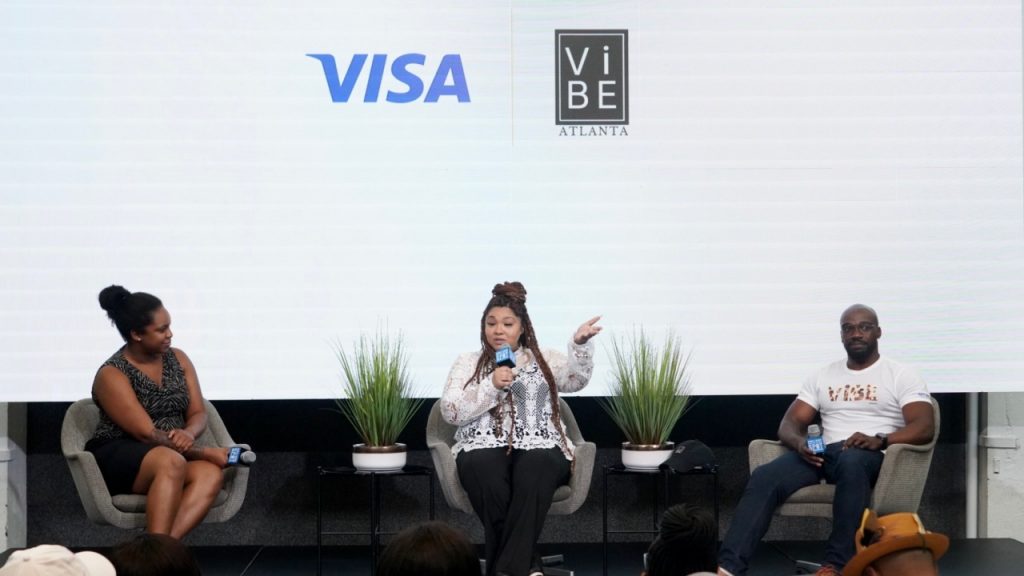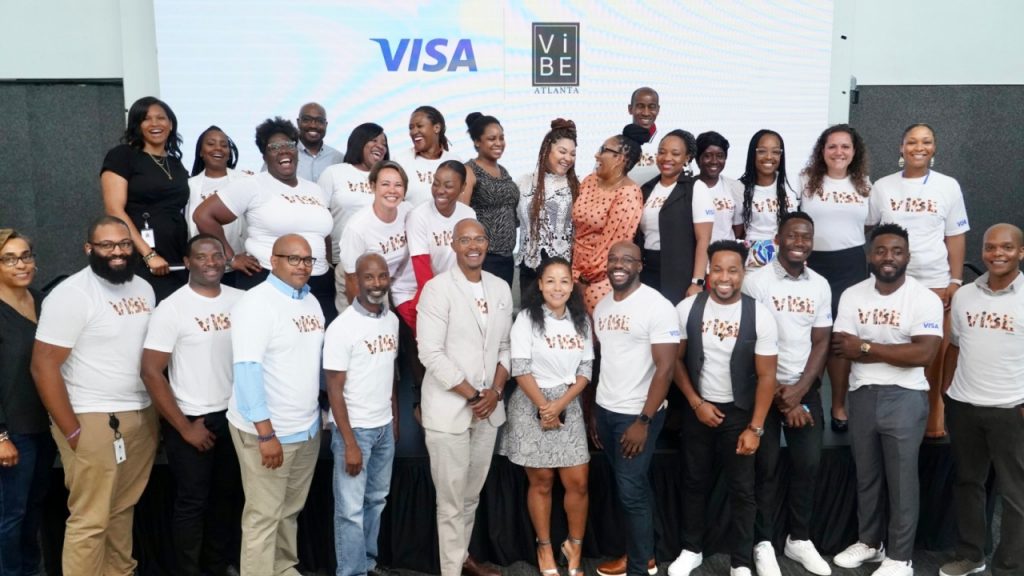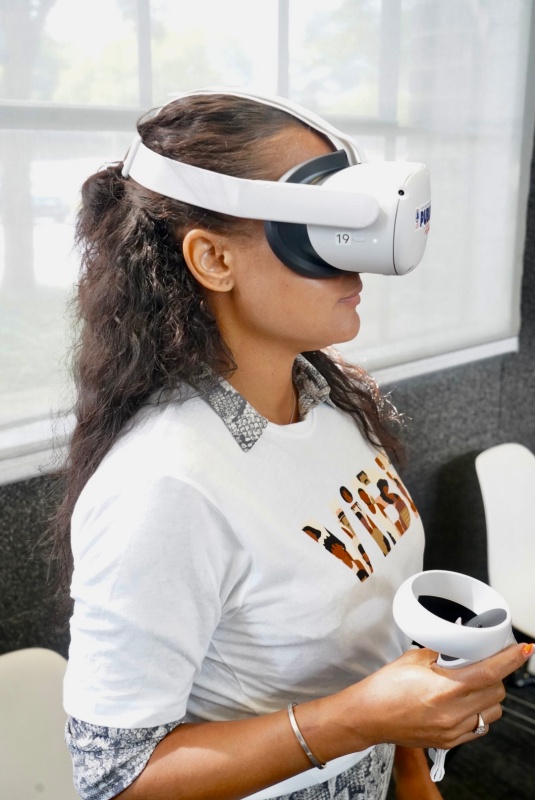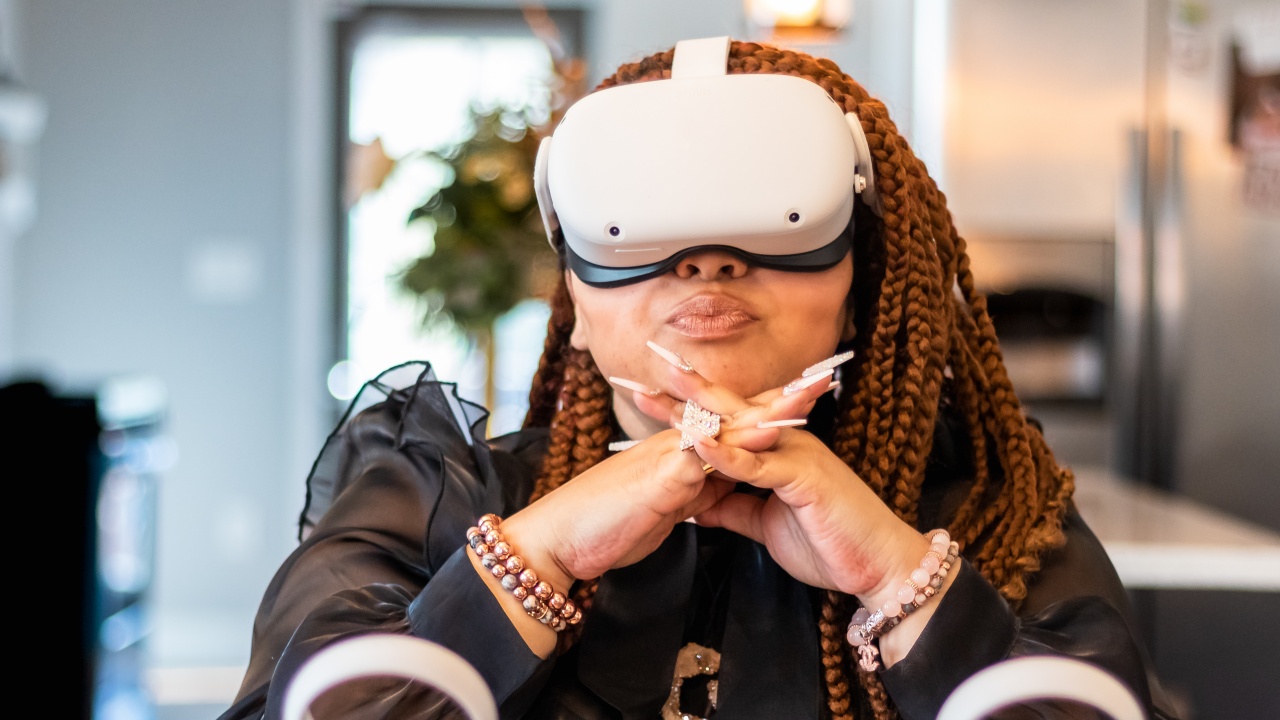Globally, music has been a great source of entertainment, a form of artistic expression and a medium of cultural exchange. Music history cannot also be discussed without reference to great women who have contributed immensely to the growth of the industry, from women of the historical Jazz era to even more contemporary female artists. However, these music histories are slowly fading with time and if they are not preserved in a futuristic way, they will slowly be forgotten.
REVERE: A reverence to history
Yolanda Barton – I come from a music community and growing up, I listened to music from great artists like Aretha Franklin, Quincy Jones, Jimi Hendrix, Ray Charles and so many more. A lot of these artists grew up in my neighbourhood and I noticed over the last ten years that music history is slowly going into extinction. A lot of people from the present generation do not even know about these great artists. Their works and lives that made the music industry what it is today, are slowly fading away.
Y. B. – I am worried about how those concerts, events and memories are not accessible anymore and we want the future generation to know who these musical legacies were before us. I like to use XR to preserve music legacies and create XR experiences out of music histories that have almost been forgotten and allow people to relive this music history as though it happened in the present. This will include museum experiences of music arts that are important in the journey of these artists. That’s what we refer to as reverence in technology and that’s why my company is named ‘Revere XR’ because it’s about reference for those that came before us.
Y. B. – I am currently focusing on music legacies that are vanishing the quickest in communities that are being erased. And I am looking at where heritage is at risk of being extinct. I want to preserve music history in Africa, Brazil, the Caribbean, USA, in communities, villages, and geographical spaces all over the world that house that history.

XR as a medium of reliving music history
Y. B. – When I was little, my mother made me read a lot of books since it was the most widely used medium of learning, but as we are moving into the future, we are learning a lot more ways to learn. There are new technologies and tools out there that we didn’t have when we were younger. The world is evolving fast and we are in the digital age, so if we want to make these lessons and moments more accessible, we can’t only have them in books. Children are now learning faster online than they’re learning from books. As such, it is important to lean towards advanced technologies as tools for education.
Y. B. – Extended realities are the future and they are a new way to innovate that social experience of preserving music history. I did two masters and part of a doctorate program, to study how I could use immersive technology to preserve music history. I believe this is an effective way of ensuring these music histories are accessible even to the future generation.

Preserving Women’s Music History
Y. B. – From my studies so far, it is important to state that women have made a lot of contributions to developing the music industry in the past and present. So, their music must be equally preserved, just as we also intend to do with music from their male counterparts. We’re now looking at how these legacies can shape the future of music. I am looking at preserving the music of women in different eras and different geographies. I want to make sure everyone’s stories are told and that they are accessible and that these legacies aren’t just being erased from music history. We’re honouring their contribution to the music scene and we will be making reverence to these women.
Y. B. – For the women’s legacies, I would love to cover the music, history and lives of women like Aretha Franklin, Tina Turner and a lot of female artists across diverse music genres, by using XR to tell their stories, so you can experience it, interact with it, learn history and even get tours. We will recreate the neighbourhood where they grew up, spaces, clubs and venues that once existed in their music journey, so you can be immersed in that history in a futurist environment. We want to show their cities and what they mean to the artists and their journeys as women in music.
Y. B. – I am specifically thrilled by the music from Africa because it is priceless to history and I want to get more involved in that space to know what the history of these artists is in comparison to other countries.

Being the only woman or woman of colour in the room
Y. B. – While working in the XR scene, I realise I have always been the only woman in the room or the only woman of colour in the room. To me, it is a gift and a blessing to the industry, because I get to contribute my voice to projects, through my gaze as a woman or woman of colour. I am a tech founder who is using tech as a medium to change the world. I run into challenges all the time, especially because I am trying to push the boundaries of tech and still do things in a way that I deliver the best quality and experience for people to engage with. This is a new industry, but it’s growing rapidly and the tools are growing expensively. I try to stay up to date on that and innovate more people to get involved. For the industry to grow, we must listen to people and their ideas, regardless of who they are, and where they come from. I am not a tech developer, but I am a tech founder with great ideas and visions on how to use immersive tech to shape the future.
Y. B. – I also ensure that all my projects foster the inclusion of marginalised voices because it is important to include these voices in the experience.
Previously…
XR Through The Womanist Gaze 1/3: Education for Women, with Judith Okonkwo
XR Through The Womanist Gaze 2/3: Telling Women-Related Stories With AR With Adriana Vecchioli



Leave a Reply
You must be logged in to post a comment.